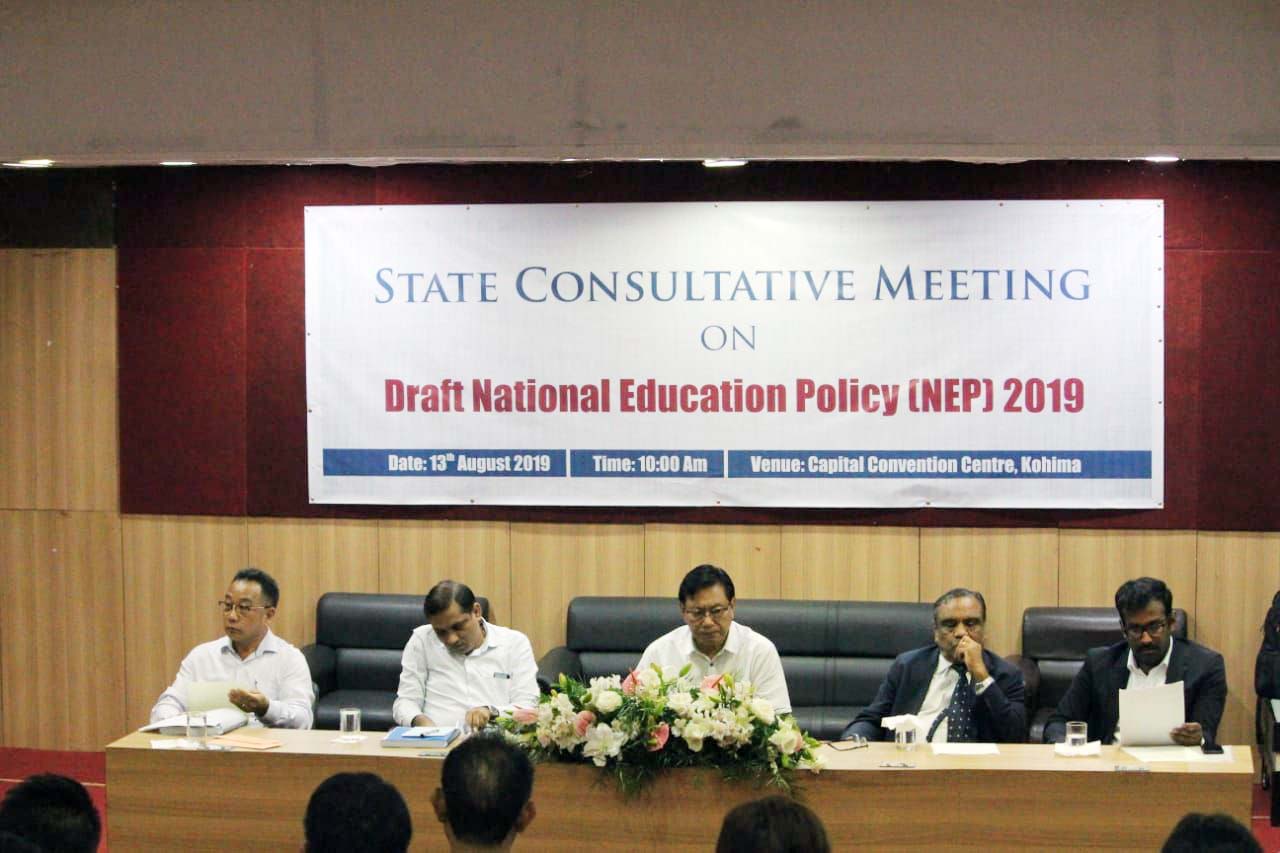Edu Dept seeks suggestions on National Education Policy

Advisor for School Education, KT Sukhalu with other dignitaries during the state consultative meeting on the draft NEP 2019 in Kohima on August 13. (Morung Photo)
Our Correspondent
Kohima | August 13
The Nagaland State School Education Department today conducted a state consultative meeting on the draft National Education Policy (NEP) 2019, at Capital Convention Centre, Kohima and sought views and suggestions from different organizations of the state.
The meeting witnessed participation from the state government and different organizations. Stakeholders have been asked to submit their views, comments and suggestions within a week’s time.
School Education Advisor, KT Sukhalu said the consultation process involves participation from the grassroots level to the state, regional and national levels in bringing out a comprehensive policy.
The Advisor informed that the views and suggestions will be put forward to the Government of India.
He also emphasized on the need to inculcate skill development, so that students can delve into entrepreneurship and contribute to the state economy. He asked both the government and private institutions to focus on this field.
He meanwhile informed that while private institutions have their own mechanism to address issues, every new scheme’s need to be reviewed for government institutes, thereby needing more manpower and resources.
One big challenge faced by the government, he said, involves the continuous change in systems that have to be done with the coming of each scheme.
The meeting was chaired by Wonthungo Tsopoe, Director, School Education while keynote address was delivered by Menuokhol John, Principal Director, School Education. Shanavas C, Principal Director, School Education gave the introductory remarks. Kevileno Angami OSD, School Education made the concluding remarks.
The NEP 2019, according to the Government of India, aims to meet the changing dynamics of the population’s requirement with regards to quality education, innovation and research, aiming to make India a “knowledge superpower” by equipping its students with the necessary skills and knowledge.
The consultative process has been initiated to enable the Ministry of HRD to reach out to individuals across the country through direct consultations while also taking inputs from citizens online.
The NEP suggests extension of the Right to Education to cover all children from 3 to 18 years of age; developing a 5+3+3+4 curricular and pedagogical structure based on the cognitive developmental stages of the children rather than their ages. This further divides the K12 years into Foundational Stage (age 3-8 yrs): 3 years of pre-primary plus Grades 1-2, Preparatory Stage (8-11 years): Grades 3-5, Middle Stage (11-14 years): Grades 6-8 and Secondary Stage (14-18 years): Grades 9-12.
It also proposes a four-year integrated stage-specific B.Ed programme, along with a restructure of technical and medical education in the country.
The proposal of continuing with the three language formula has also been reinforced in the policy. It further presses for a renewed focus on the Indian languages from the early and formative years.


